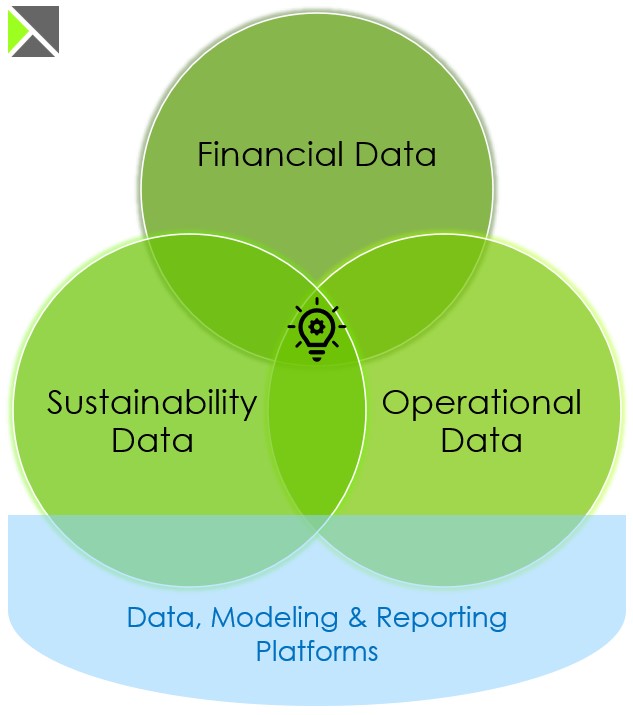A Blog about the Intersection of Sustainability, Finance and Technology:
-

What is the difference between Sustainability and ESG?
“Sustainability” sometimes refers to a vague concept of sustainable business practices, but often is used to refer specifically to the United Nations 17 Sustainable Development Goals (SDGs) which were adopted by all UN member states in 2015 as part of the 2030 Agenda for Sustainable Development. Businesses in the private sector are explicitly named (see,…
-

Visionary CFOs are Embracing Sustainability as a Catalyst for Transformation
Finance lives at the heart of the business. It’s the one place that collects, aggregates and analyzes data from every corner: from operations to sales to cash management. Finance combines views of the past, present, and future so that the best, most informed, decisions can be made in the day to day running of the…
-

Net Zero Scenario Planning
Congratulations! Your company has set a Net Zero goal for Green House Gas (GHG) emissions within 10 years! It’s great PR of course, and it plays to growing global concerns about climate-related risk. It can even help drive growth and save money because consumers are demonstrating a willingness to pay more for products that they…
-

Sustainability Data is Business Data
Sustainability to Sustain your Business (and our Planet) In response to escalating concerns about climate change and social equity, a growing number of jurisdictions (most recently California and the European Union) have enacted E.S.G. (Environmental, Social, Governance) disclosure requirements for businesses, where “E”, “S” and “G” represent categories of financial and non-financial metrics that measure…
-

Sustainability Data Strategy: Three Tips for Finance
The most widely used Sustainability (or E.S.G.) Data Management and Reporting tool today is the spreadsheet. The spreadsheet is – by far – the most flexible tool available for ad-hoc data exploration, modeling, and reporting of quantitative (numeric) data. When there is a data problem and no other solution presents itself, a talented spreadsheet power-user…
-

Commonly used Standards and Frameworks for Sustainability Reporting
When you first begin your journey into the world of Sustainability and ESG reporting, the amount of information available can be daunting. Our goal is to make it simpler by providing signposts to help you see the lay of the land quickly. Once you have an overall map of the landscape, you will be better…
-

What’s with all the Sustainability and ESG Reporting Frameworks and Standards?
Sustainability Reporting Frameworks and Standards define standard languages for reporting on sustainability and ESG1 metrics. This is useful because: Strictly speaking Frameworks provide guidelines for a structured approach to sustainability reporting principles and best practices, while Standards are more prescriptive and specific. Regulatory reporting requirements are usually tied to Standards. In reality the terms “framework”…
Want to Incorporate Sustainability Data in your Financial Planning?
